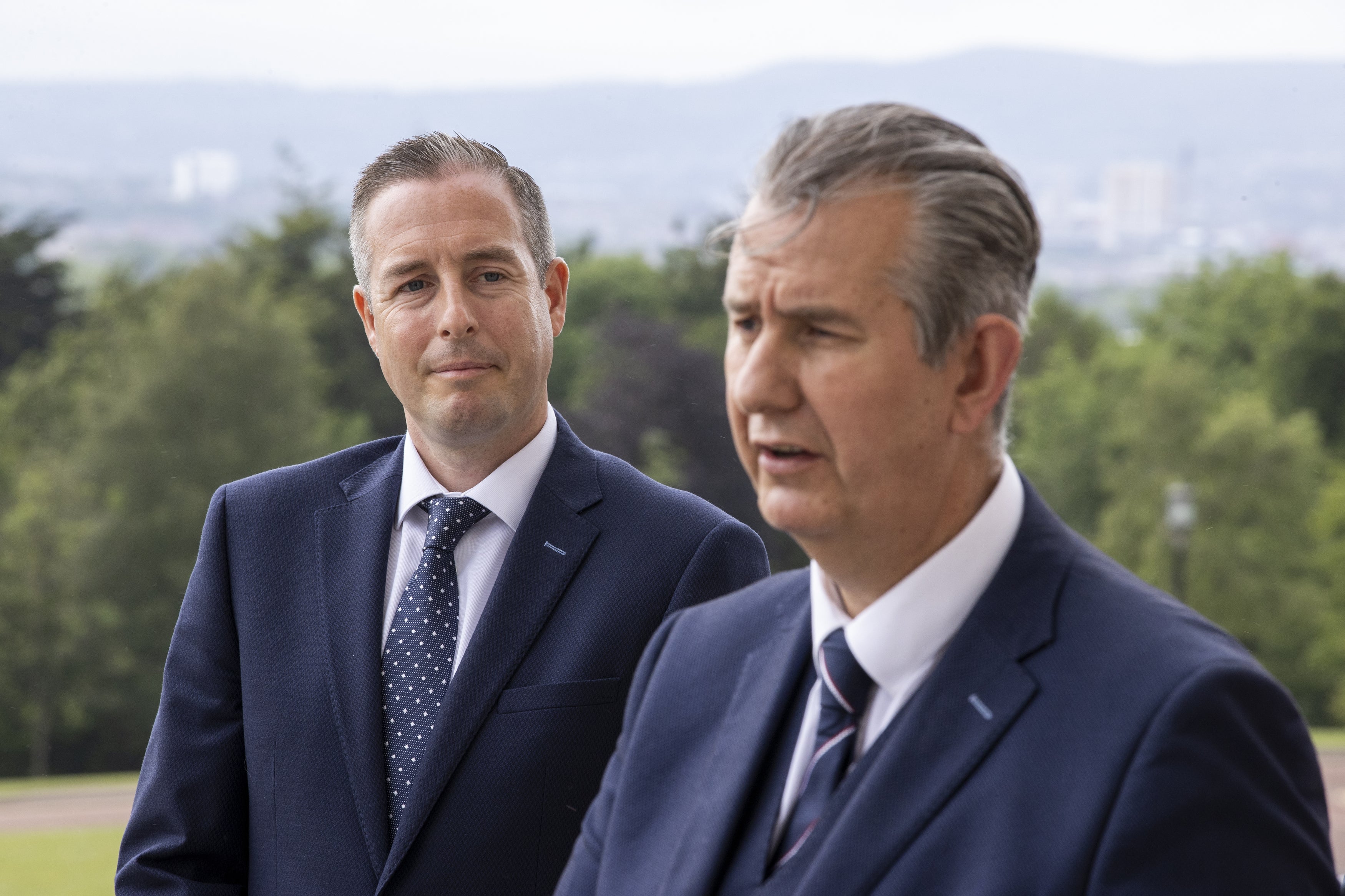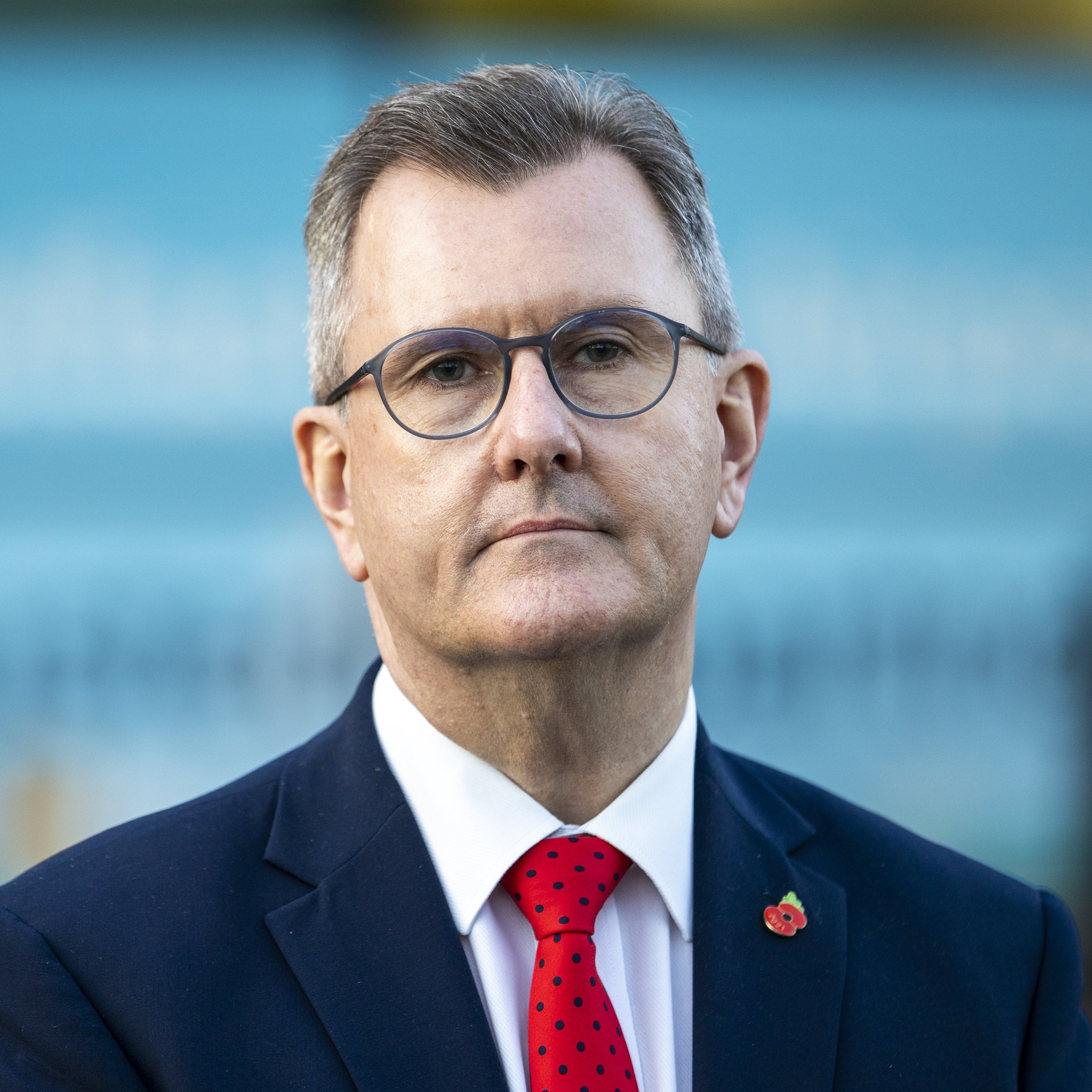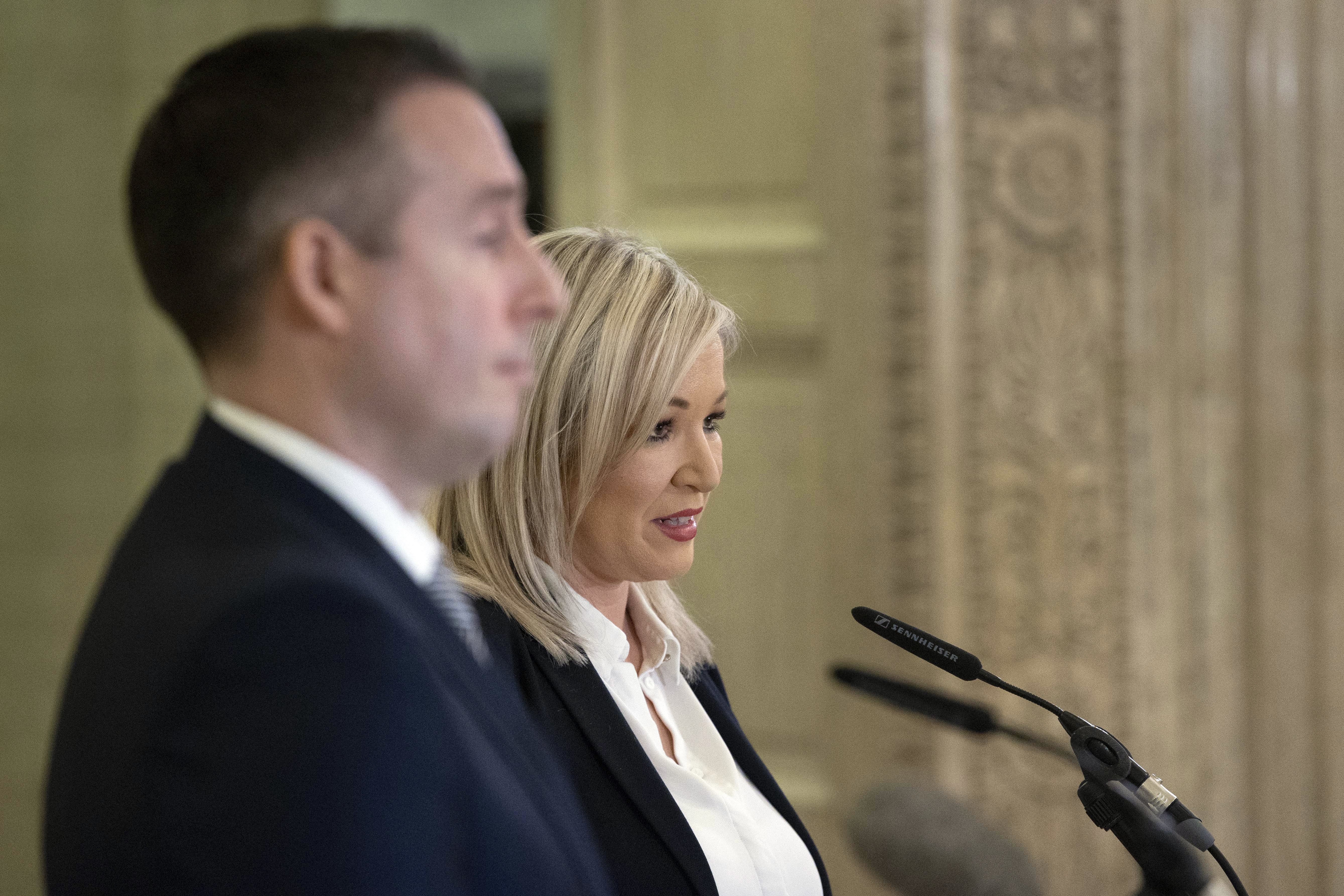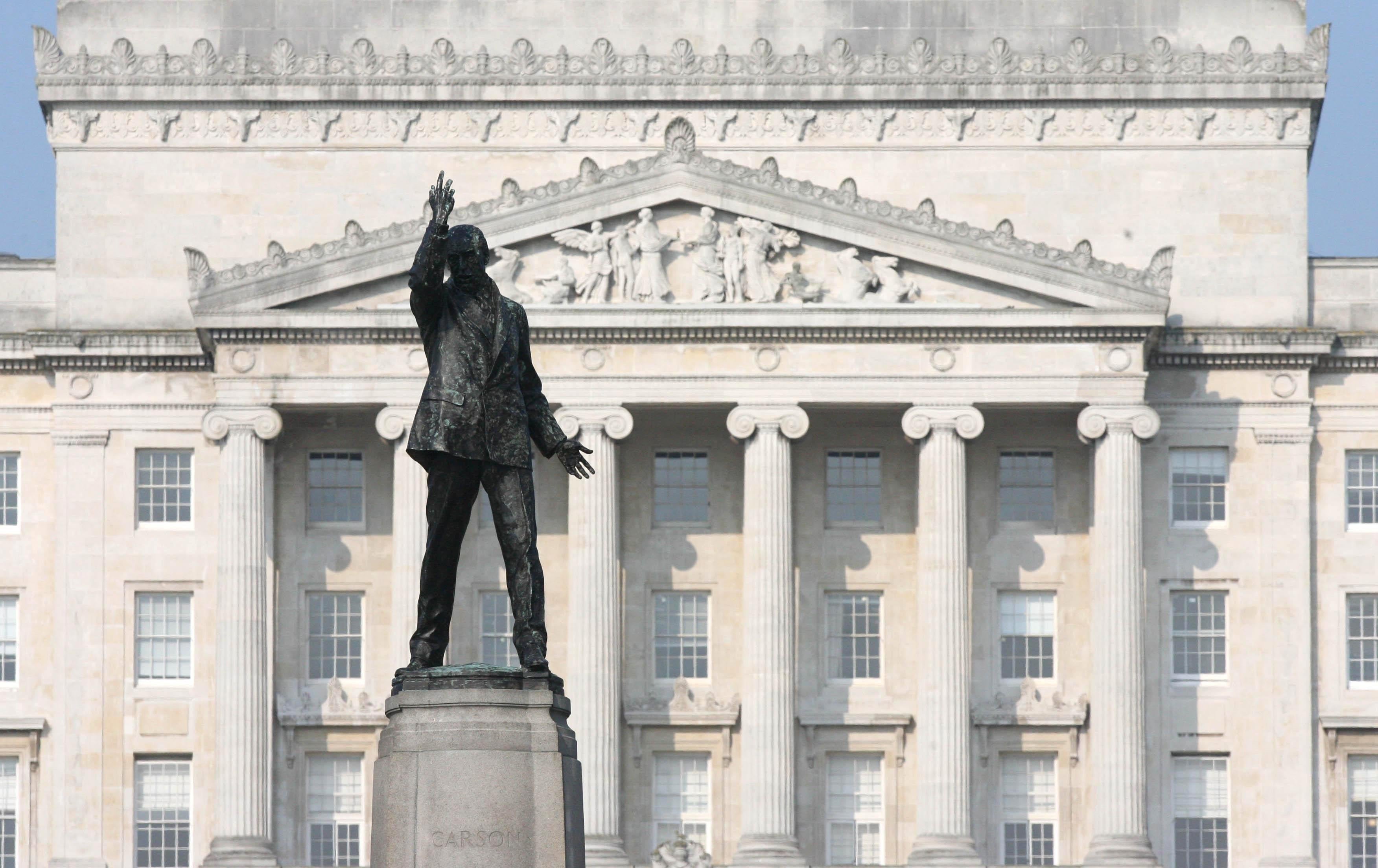
Paul Givan became Northern Ireland’s youngest ever first minister when he took up the role last summer.
Some 231 days later he looks set to become the shortest serving first minister with his anticipated resignation in protest at the Northern Ireland Protocol
Political uncertainty has surrounded much of Mr Givan’s time in the office.
When Edwin Poots was elected DUP leader last year, one of his first acts was to appoint his key lieutenant Mr Givan to the role.

But Mr Poots was to remain as leader for just three weeks when he was deposed following an internal party revolt.
His successor as leader, Sir Jeffrey Donaldson, made it clear from the beginning that ultimately he wanted to return to Stormont from Westminster and take up the role of first minister.
But he decided to keep Mr Givan in post in the interim, with Stormont elections set for May this year.
With the party deeply opposed to the so-called Irish Sea Border which followed Brexit’s Northern Ireland Protocol, Sir Jeffrey has repeatedly threatened to collapse the Stormont institutions, which would remove Mr Givan from his post.
When Mr Givan became first minister last year, it represented a meteoric rise to the top of the political ranks for the unionist politician, a 40-year-old father of three daughters.

It is understood that he had some reservations about taking on the top job, conscious of the impact on his young family and believing that it may have come too early in his career.
Mr Givan and Mr Poots have a long association. Both represent the Lagan Valley constituency which includes Lisburn The younger man’s first taste of politics came when working as a part-time assistant in Mr Poots’s constituency and Stormont offices.
Mr Givan was co-opted in 2010 as an MLA at Stormont, replacing the MP Sir Jeffrey, who gave up his Stormont position to concentrate on Westminster.
Mr Givan has made controversial decisions in the past. In 2016, when serving as communities minister, he withdrew funding for an Irish language bursary scheme.
The Liofa Gaeltacht Bursary Scheme enabled at least 100 people a year to attend summer Irish language classes in the Donegal gaeltacht.

The email informing employees of the decision was signed off “Happy Christmas and Happy New Year” and led to Mr Givan being branded an “ignoramus” by then-Sinn Fein president Gerry Adams.
The row occurred days before Martin McGuinness resigned at the height of the botched Renewable Heat Incentive scheme controversy. Devolution remained suspended for three years.
But Mr Givan has also shown he has the ability to reach out to the nationalist community. Earlier in 2016, he visited a GAA club in Lisburn and was photographed trying his hand at Gaelic football.
His ability to co-operate with his political opponents was tested during his time as first minister. He worked with Sinn Fein deputy First Minister Michelle O’Neill to navigate Northern Ireland’s response to the Covid pandemic.
The First Minister and deputy First Minister are the joint heads of the Northern Ireland Executive and undertake a number of dual responsibilities, including photoshoots and press conferences.

Mr Givan’s resignation would automatically remove Ms O’Neill from office.
It would also mean the Executive could not meet or make any significant decisions.
That would prevent the coalition from agreeing a three-year budget – a spending plan that is currently out for public consultation.
A planned official state apology by Mr Givan and Ms O’Neill to victims of historic institutional abuse, scheduled for March, would also not happen.
And ministers may be prevented from removing any remaining Covid-19 restrictions in Northern Ireland.







